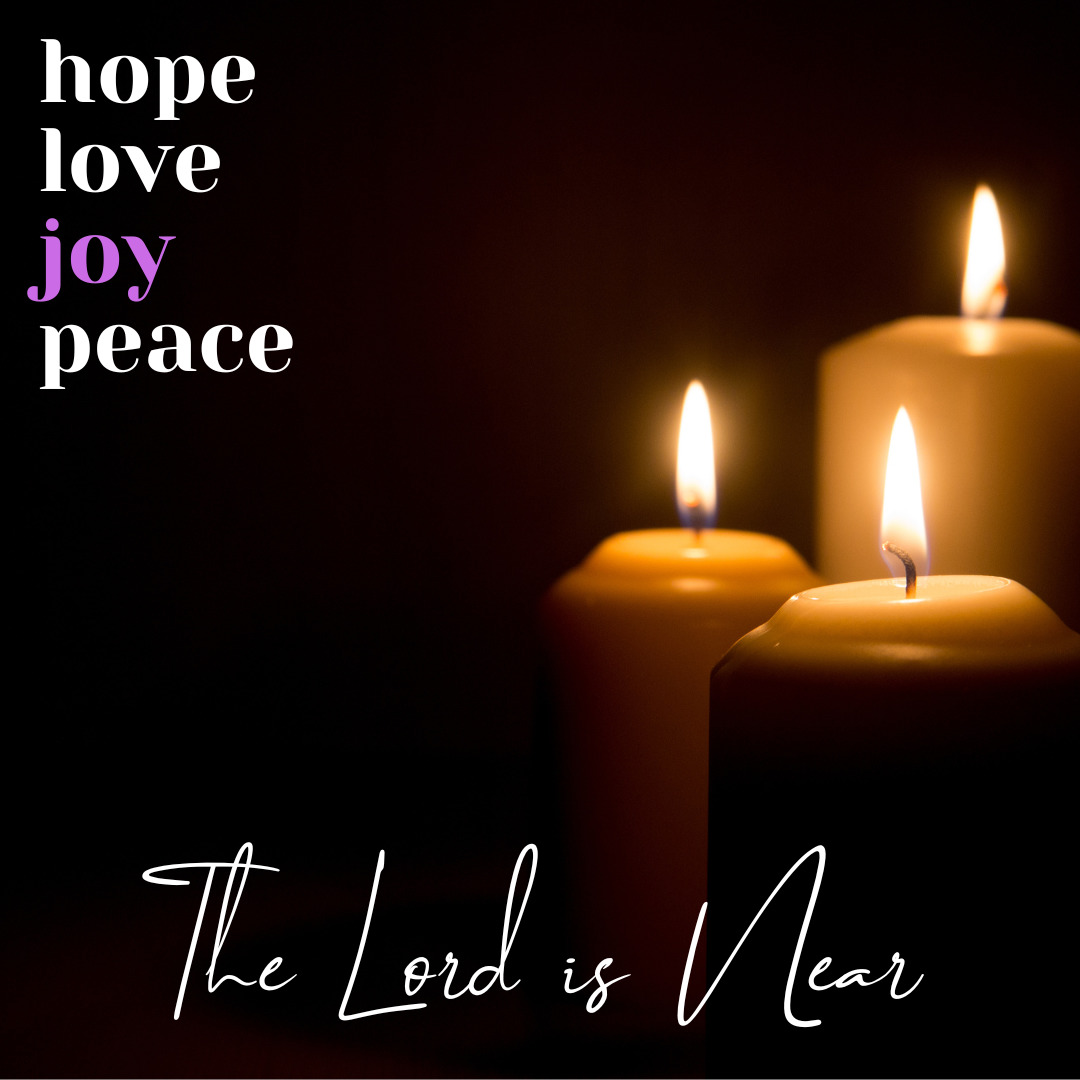by Rev. Dr. Cheryl Fleckenstein, Oblate of St. Benedict
- Isaiah 35:1-6a, 10
- James 5:7-10
- Matthew 11:2-11
So here’s how I imagine the background to today’s reading: John’s cell was dark and dank. He paced back and forth, fettered less by his chains than by his misgivings. Allowed at last to see one of his followers, he sends the man to carry a message — a single question — that will settle his doubts once and for all. All that was left now was to wait, wait and see whether he had spent his life in vain.
But no. Instead of preparing us for the birth of the babe at Bethlehem, the lectionary has jumped ahead some ten chapters and 30 years into the middle of Matthew’s account of Jesus’ ministry. What an odd choice.
And so he sends one of his disciples to ask Jesus, quite plainly, “are you the one who is to come, or are we to wait for another?”
With all this in mind, I wonder how John received Jesus’ answer. I doubt it was very satisfying. Jesus instructs John’s disciple to go and tell him what he has seen and heard. Nor, I imagine, would John take much comfort in the rest of Jesus’ answer.
“Go and tell John what you hear and see: the blind receive their sight, the lame walk, the lepers are cleansed, the deaf hear, the dead are raised, and the poor have good news brought to them. And blessed is anyone who takes no offense at me.”
What kind of an answer was that? Certainly it’s not what John expected from Jesus. What John mostly likely looked for — and honestly, what most of the time we look for too — is a strong Messiah for a strong people, a Messiah who helps those who help themselves, a Messiah who knows how to stand up for himself, a Messiah, in short, that you can be proud of.
What he gets instead is Jesus. And measured against all John’s hopes and expectations, Jesus probably falls disappointingly short of the mark. Let’s face it. The people Jesus seems preoccupied with — the lame, the deaf, the poor, the ill, and the dead, for heaven’s sake — these folks aren’t exactly the movers and shakers of the world. Rather they are those who are moved and shaken by every whim of the rich and powerful. These people weren’t going to change things. They’re the social outcasts and economic losers of John’s day, the kind of people who can barely fend for themselves let alone help anyone else.
Think about it. There’s John, pacing and pondering in his cell, who suddenly, despite his earlier fame, despite his charismatic personality, despite all his followers, despite even his mighty faith, finds himself in a position of absolute need.
Now, I know this can be a frightening, even terrifying thing. For we live in a world that preys on the weak. Not surprisingly, from early on we are taught to trust no one, to take nothing for granted, and to cover all the bases. So when push comes to shove we regularly try to hide our insecurities and fears behind our houses and careers, or even behind our failings and infirmities. Until, that is, the word “cancer” or “downsized” or “divorce” is breathed; and we know ourselves to be just as fragile and vulnerable as anyone else. And at these moments, which seem so much more common at this time of the year, the words Jesus speaks offer some measure of comfort.
This, in short, is what we prepare for during this season, as in Christ, our Emmanuel, God draws near in the flesh and blood of that poor babe to take on our lot and our life so that we may know of God’s promise to be with us forever.
And so while Matthew’s portrayal of John and his doubts is startling, maybe it’s not so odd to hear about it at Christmas, when we too, at times, feel stuck between God’s promises made and God’s promises kept; when we too, at times know ourselves to live in between Christ’s first coming at Bethlehem and his second in glory; when we too at times, disappointed by ourselves, the world, and even God, find ourselves whispering a prayer as desperate as it is ancient and simple: O Come, Lord, Jesus, Come.
At those moments, we know that whatever our misgivings, whatever our disappointments, God is not disappointed in us and comes to us anyway, eager to join us in our weakness, to hold onto us in our insecurity, and to comfort us in our fear. For God in Jesus came not for the strong and the proud, but the weak and the vulnerable. God in Jesus, came for us.
So there is John, a few weeks short of Christmas, still pacing, pounding the few steps around his short prison space, wondering and worrying whether Jesus is really the one, when all of a sudden, there is a knock, an entrance, and the delivery of the long awaited response to a heartfelt question. “John,” I imagine his disciple telling him, “Jesus told me to tell you that the blind receive their sight, the lame walk, the lepers are cleansed, the deaf hear, the dead are raised, and the poor have good news brought to them. And blessed is anyone who takes no offense at him.”
I wonder if John got it. I wonder if we will.

